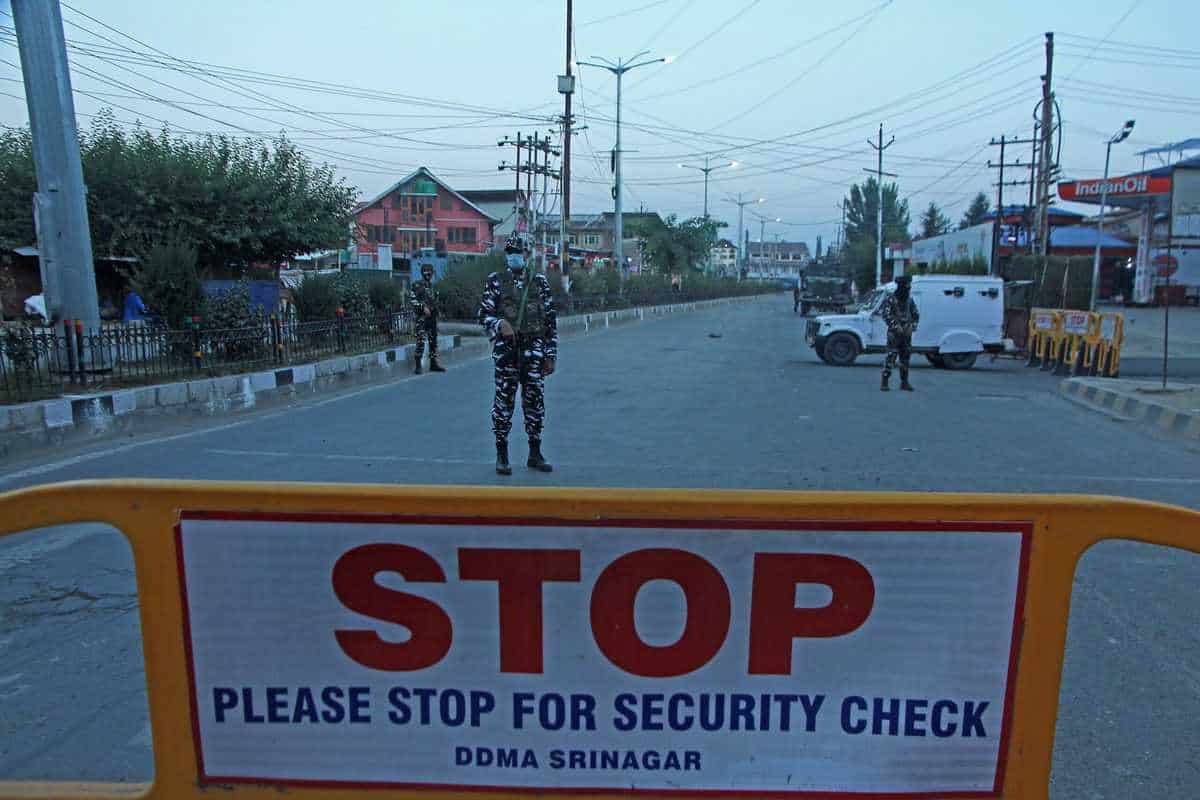Srinagar: The Indian government imposed stringent restrictions on communication and movement across the Kashmir valley after the demise of Kashmiri separatist leader Syed Ali Shah Geelani late Wednesday.
A huge number of troops were deployed at every road leading towards the residence of Syed Geelani at Hyderpora, Srinagar. Security forces erected barricades and barbed wire to curb the movement of people. All mobile phone services except BSNL were also snapped.
“Restrictions, including suspension of internet services, have been imposed in Kashmir Valley,” said Vijay Kumar, IGP Kashmir.
Geelani died at the age of 92 and was buried in a local graveyard late night with select people allowed to attend his funeral. Geelani’s son Naseem told media that the family wanted to bury the separatist leader in the main martyrs’ graveyard in Srinagar as per his wish.
However, the authorities organised the funeral with strict curbs on attendance. Police and soldiers patrolled the barricaded region to ensure that the funeral gathering was limited and brisk. The family alleged that the officials forcibly buried Geelani. “Nobody from the family could attend the burial and when we resisted, they overpowered us and even manhandled women,” Naseem told the Associated Press.
According to the Press Trust of India, the funeral procession was conducted in a hushed-up manner to prohibit any anti-India protests which might take place. Geelani is well-known for spearheading the Kashmir movement for self-determination and ardently vouched for merging Kashmir with Pakistan.
Further, Geelani’s activism was marked by opposition to any dialogue with India. He had led the faction of All Parties Hurriyat Conference to counter Indian rule by employing civil disobedience as a tactic.
Pakistan observed a day of official mourning and flags flew at half staff on orders by Prime Minister Imran Khan. Its foreign ministry condemned the non-public burial by Indian authorities.








